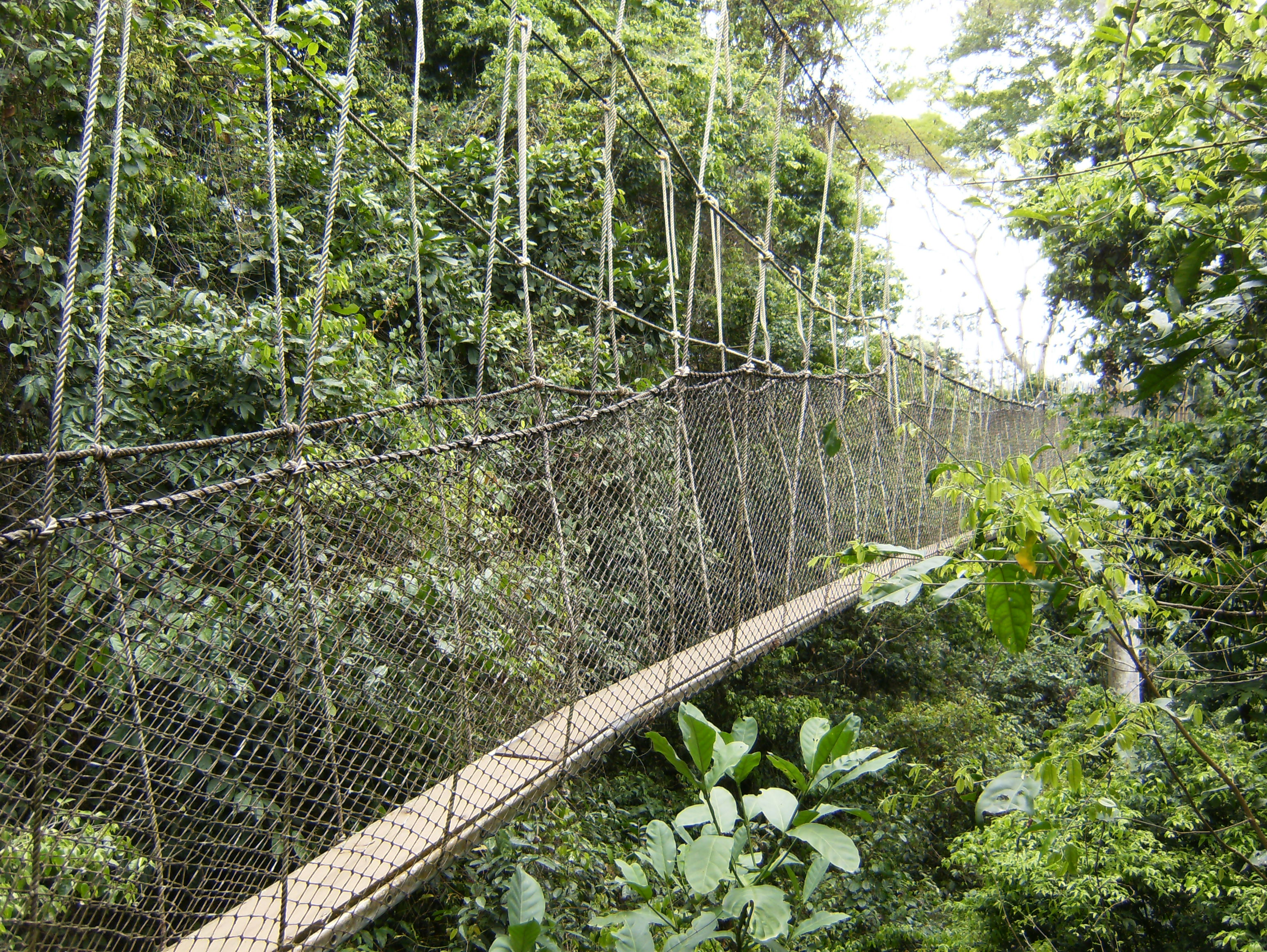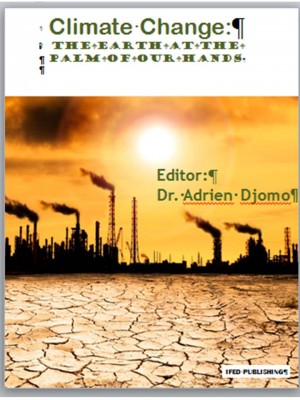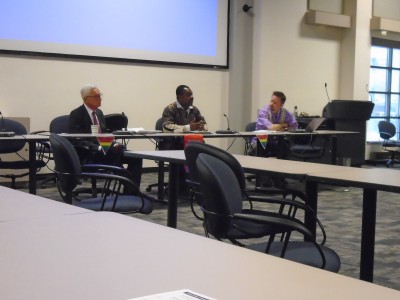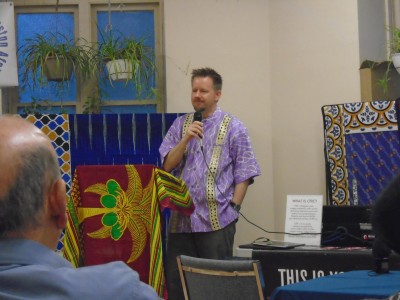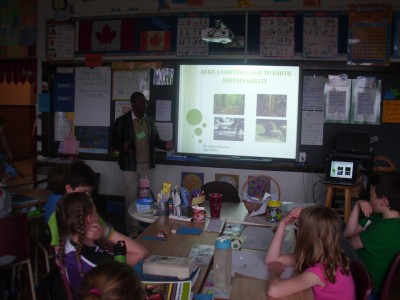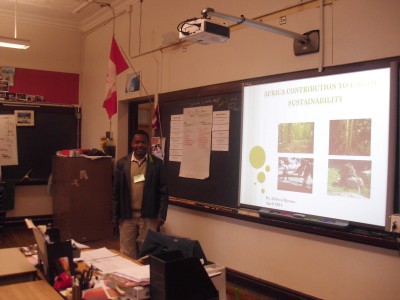Climate Change Mitigation
Forest Ecosystems: Measurement and Modelling of Biomass and Carbon
In the past decades, deforestation and forest degradation accounted for about 20% of greenhouse gas emissions showing that the mitigation of global warming cannot be achieved without the implication of forest contributions in international agreements. The Global Forest Resources Assessment noted that the overall rate ofdeforestation remained alarmingly high, although the rate was slowing. Therefore, measuring and modeling biomass from forest ecosystems has become a main challenge for governments and forest managers to make sure that forests contribute to climate change mitigation and continue to play all his roles including providing healthing environment, goods and biodiversity to sustain live of people around the world. Forest inventory and biomass estimation require a combination of different techniques. This book explains in simple words the various techniques used for measuring and modeling biomass from forest ecosystems.
You can obtain a copy of the book from Queen’s bookstore at $37.50.
Get your copy of ebook at $18.75 through this link http://www.campusebookstore.com/EBooks/Book.aspx?ID=9657210&bookseller_id=5
A synopsis of the book can be found here
Climate Change: The Earth at the Palm of Our Hands
Climate change is one of the pivotal and dynamics which have always been part of the universe history. The change in the climate system has triggered the Earth formation as well as the Earth‘s history. The climatic aspects of environmental change affect lakes, water levels, disappearing glaciers, sea level rise, desertification and dwindling water resources. Recent human activities have resulted to an unprecedented increase of the greenhouse gases with serious consequences on the climate systems which have impacts on biodiversity, human health and availability of natural resources. In an ever more populous world one of the most important questions to answer is: “policy action on climate change must wait for more science or whether action is merely delayed by failure to appreciate science”.
Hardcopy
Available at Queen’s Campus bookstore. Price $31.25
eBook
Available here
http://www.campusebookstore.com/EBooks/Book.aspx?ID=9650207&bookseller_id=5
REDD+ in DR Congo
The Democratic Republic of Congo (DRC) which covers an area of 2,345,000 km², host the second largest tropical forest in the world. Between 2000 and 2010, 3 695 242 ha were deforested in this country. To take this issue, DRC (actively involved in the REDD+) with financial support of USAID and USFS, selected Dr. Djomo to work in collaboration with national experts to assess tools that can be used for estimation of carbon pools from forests and options for the development of new equations for carbon estimations. DRC is engaged to reduce emissions from deforestation and is currently developing Forest Reference Emission Level/Forest Reference Level (FREL/FRL) with some actions to mitigate deforestation and forest degradation in the future.
WELCOME NIGHT REPORT 2015
As the number of new and returning Graduate and Undergraduate students from African diaspora is increasing, the organizing committee of QAD (Queen’s Africa Day) thought it was good to keep the network vibrant to facilitate the planning of future events such as the QAD and others. More info on welcome night can be found here
Queen’s Africa Day 2015
On 26 March 2015, from 8.15 – 5.30 at Robert Sutherland Hall, Room 202, was the second Queen’s Africa Day . The purpose was to increase the awareness of, and promote, the current Involvement of the Queen’s community in academic research and teaching pertaining to Africa and African Diasporic studies. The Africa Day event also aims to foster dialogue between Queen’s students, faculty, staff, and the wider Queen’s, Kingston, and surrounding communities through presentations and posters on Important development themes ranging from health and human security to LGBTQ and environmental issues to democratization and good governance.
A banquet concludes with an African–‐themed dinner event held at the Sydenham Street United Church, 82 Sydenham Street, from 6 to 8:30 Pm. It celebrated African arts and cultures through musical performances and other artistic media.

More information on Queen’s Africa can be found under this link
http://queensjournal.ca/story/2015-03-27/news/africa-day-builds-partnerships/?flavour=mobile
EARTH DAY 2014 in KINGSTON
The Earth day is always an occasion to do something great to value the precious resource that we have in the Earth. It is the time to help as we can for a hope that present trend on over use of natural resource and energy consumption should be change for a better future.
On Tuesday April 22 2013, Adrien Djomo gave at the occasion of the Earth day a series of presentation at the Rideau Public High School to Grade 7/8 in English and to Grade 4/5 French immersion in French. The title of the presentation was ‘Africa contribution to Earth sustainability’
During this presentation, Dr. Djomo explained to the students the African origin of the humanity and told them how the other continents have been populated through migration exiting across Bab-el-Mandeb, the Suez Canal in Egypt or the Strait of Gibraltar on the Red Sea. A general presentation of Africa was made and the contribution of tropical forest to Earth sustainability was a main focus of this presentation. The students learned the various forest ecosystems in Africa, their importance for biodiversity conservation and their main contribution most especially during winter. During that period, forests in Nordic hemisphere are almost not productive while energy consumption increases; the main filter that the world has at that time for carbon sequestration in the atmosphere is tropical forest. Over-exploitation is threatening these forests. Together we have to make sure that forest management is done in a sustainable way to provide ecological, economic and ecological benefit to those living close to these resources and also for life quality in the world.
CELEBRATE NELSON MANDELA WITH RND STUDENTS
On January 24, 2014, students at RND Kingston are paying tribute to Nelson Mandela who passed away on December 5, 2013.
Adrien Djomo PhD, will give an introduction talk on the context in South Africa before the movie.
Also read the article written at this occasion under the link
OPFA Meeting Toronto : Growing Professionalism in the Forest.
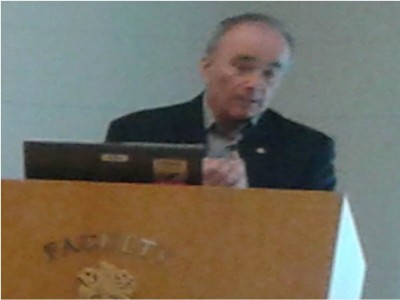 As part of the fall seminar series 2013, OPFA organized on Monday 21 October at the Faculty of Forestry, University of Toronto a seminar to advocate continuing recognition in forest practice and growing professionalism in the forest sector. During the seminar, Mr. David Milton, RPF (Associate Executive Director, OPFA) presented to the participants the core business of OPFA – regulation update, advocate update, governance and support update. The participants recognized the declining trend in the forest profession. Some attempts for growing professional is currently under development in OPFA in collaboration with the Ministry of Natural Resources (MNR). This consists of designing a new professional model that will include all the professions working in the forest sectors such as biologists, botanists, forest technicians, geographers, arborists, environmentalists, habitat managers, etc. who are not in the actual core competency of OPFA under a new larger association AFP (Association of Forest Professionals) working under the authority of the MNR. The forest research which is excluded in the core competency of OPFA could be included under the new design. This approach which is more inclusive of all professions working in and around the forest for the benefit of our forest is expected to strengthen the forest profession and inverse the declining trend of the forest profession. OPFA recognizes the long process with unnecessary information for including new members and may facilitate in the future this process to allow foreign trained professional to have access to the profession.
As part of the fall seminar series 2013, OPFA organized on Monday 21 October at the Faculty of Forestry, University of Toronto a seminar to advocate continuing recognition in forest practice and growing professionalism in the forest sector. During the seminar, Mr. David Milton, RPF (Associate Executive Director, OPFA) presented to the participants the core business of OPFA – regulation update, advocate update, governance and support update. The participants recognized the declining trend in the forest profession. Some attempts for growing professional is currently under development in OPFA in collaboration with the Ministry of Natural Resources (MNR). This consists of designing a new professional model that will include all the professions working in the forest sectors such as biologists, botanists, forest technicians, geographers, arborists, environmentalists, habitat managers, etc. who are not in the actual core competency of OPFA under a new larger association AFP (Association of Forest Professionals) working under the authority of the MNR. The forest research which is excluded in the core competency of OPFA could be included under the new design. This approach which is more inclusive of all professions working in and around the forest for the benefit of our forest is expected to strengthen the forest profession and inverse the declining trend of the forest profession. OPFA recognizes the long process with unnecessary information for including new members and may facilitate in the future this process to allow foreign trained professional to have access to the profession.
Also find below the calendar of the regional fall 2013 seminar of OPFA
Tuesday October 15 (9:00 – 1:00) Midhurst Simcoe County Museum
Wednesday October 16 (9:00 – 1:00) Peterborough Ontario Government Building
Thursday October 17 (9:00 – 1:00) Pembroke Algonquin College
Friday October 18 (9:00 – 1:00) Manotick Rideau Valley Conservation Authority
Monday October 21 (10:00 – 1:00) Toronto Faculty of Forestry
Tuesday October 22 (9:00 – 1:00) Cambridge Grand River Conservation Authority
Friday October 25 (9:00 – 1:00) Oakville Oakville Town Hall
Monday October 28 (9:00 – 1:00) Huntsville MTO Area Office
Tuesday October 29 (9:00 – 1:00) North Bay Nipissing Forest Resource Management Inc
Wednesday October 30(9:00 – 1:00) Engelhart First Resource Management Group
Thursday October 31 (9:00 – 1:00) TimminsOntario Government Complex Porcupine
Monday Nov 4 (Central 9:00 – 1:00) Fort Frances Resolute Woodlands Offices
Tuesday November 5 (9:00 – 1:00) Dryden Ontario Government Building
Wednesday November 6 (9:00 – 1:00) Thunder Bay Lakehead University
Thursday November 7 (11:00 – 1:00) Longlac The Woodlands
Friday November 8 (9:00 – 1:00) Kapuskasing MNR Offices
Tuesday November 12 (9:00 – 1:00) Wawa MNR Offices
Wednesday Nov 13 (9:00 – 1:00) Sault Ste Marie Great Lakes Forestry Centre
Thursday November 14 (9:00 – 1:00) Sudbury MNR District Office
Adrien Djomo
National Forest week September 22 – 28 2013.
 Every year, Canada celebrates in September a National Forest week. It is an occasion around the country to make something valuable for this key resource which sustains the life of all creatures in Earth through photosynthesis which helps to fix carbon in all living plants, build food and liberates oxygen that we all need. During National Forest Week, Canadians are invited to learn more about Canada’s forest heritage and to raise awareness about this valuable and renewable resource. Forests are fundamental to our economy, culture, traditions and history – and to our future. Communities, families and individuals depend on forests for their livelihood and way of life.
Every year, Canada celebrates in September a National Forest week. It is an occasion around the country to make something valuable for this key resource which sustains the life of all creatures in Earth through photosynthesis which helps to fix carbon in all living plants, build food and liberates oxygen that we all need. During National Forest Week, Canadians are invited to learn more about Canada’s forest heritage and to raise awareness about this valuable and renewable resource. Forests are fundamental to our economy, culture, traditions and history – and to our future. Communities, families and individuals depend on forests for their livelihood and way of life.
History Established circa 1920 as Forest Fire Prevention Week, the intention was to encourage greater public awareness towards Canada’s forests. At the time, there was no apparent shortage of trees for industrial expansion – the greatest threat came from forest fires, due mainly to human causes. Since then National Forest Week, as it was renamed in 1967, has evolved to encompass the many and varied human and environmental aspects of Canada’s forest resources – past, present and future. Although special activities are promoted across Canada, National Forest Week remains first and foremost a challenge to individual Canadians to learn more about their forest heritage and support greater recognition of this valuable resource. National Forest Week is observed annually during the last full week of September, Sunday through Saturday. National Tree Day is observed on the Wednesday of National Forest Week.
At this occasion, many events are organized including the National Tree Day celebrated at Ottawa as well. Ontario Forest Association (OFA) at this occasion invites volunteer foresters to go to schools and give talks to students about the forest and their importance for our life. As a response to this invitation, on Sep. 24 2013, Adrien Djomo celebrated with grade 3 and 4 students at Rideau Public School the Forestry week into the classroom.


